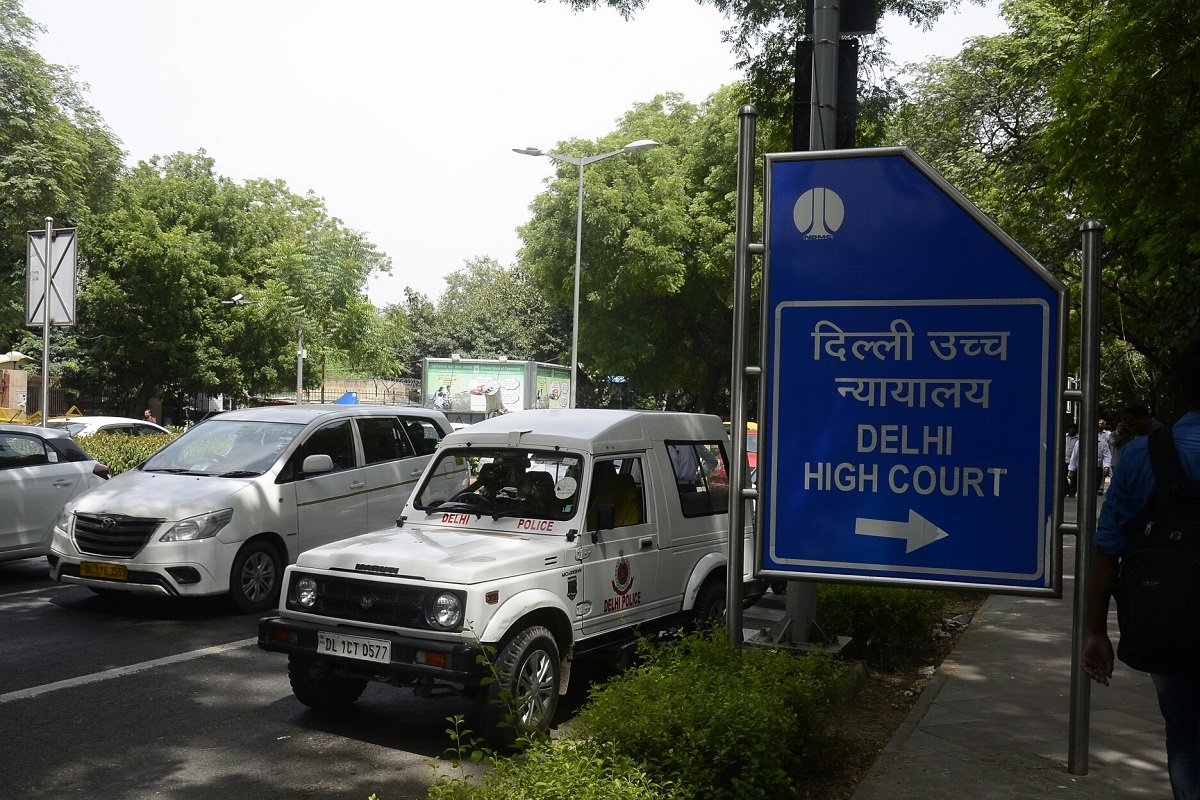Hate speech: BJP leader George seeks time to appear before police
George on Saturday requested the police for an extension until February 24 to appear before them for investigation in connection with the case.
The court while dismissing Sasikala’s plea for removing the photographs/blocking access to them, directed her to equally pay costs of Rs two lakh each to Facebook Inc on one hand, and Google LLC and YouTube LLC together on the other, after noting that she was not entitled to any relief against these social media companies.

A single judge bench of Justice Rajiv Sahai Endlaw in the judgment running into 43 pages held, "Considering the fact that the plaintiff (Sasikala) is a politician, participating in the electoral process and is a representative of the people", the people and/or the electorate certainly have a right to know who the plaintiff meets behind closed doors."(File Photo: IANS)
The Delhi High Court, today ruled that people have a “right to know whom their electoral representative is meeting behind closed doors,” while dismissing a petition by Tamil Nadu politician Sasikala Pushpa alleging that her image was being tarnished due to uploading of her morphed pictures and videos with a man on social networking platforms.
A single judge bench of Justice Rajiv Sahai Endlaw in the judgment running into 43 pages held, “Considering the fact that the plaintiff (Sasikala) is a politician, participating in the electoral process and is a representative of the people”, the people and/or the electorate certainly have a right to know who the plaintiff meets behind closed doors.”
Advertisement
The court while dismissing Sasikala’s plea for removing the photographs/blocking access to them, directed her to equally pay costs of Rs two lakh each to Facebook Inc on one hand, and Google LLC and YouTube LLC together on the other, after noting that she was not entitled to any relief against these social media companies.
Advertisement
Sasikala who has now joined Bharatiya Janata Party, was an expelled Rajya Sabha MP from AIADMK in 2016, when the suit was filed.
“I am therefore of the opinion that the claim of the plaintiff, of the photographs being morphed, forged and fabricated, does not deserve to be put to trial. Issues are not to be framed mechanically on all the pleas in the pleadings, howsoever vague and frivolous,” the court said.
The first person to be impleaded would have been the subject man. “Strangely the plaintiff instituted the suit without even impleading the said man,” the court said.
The HC further opined that if the photographs showing her with a man, according to the plaintiff had been morphed, forged and she was suing for relief on the said basis.
Justice Endlaw held, “Once the plaintiff (Sasikala) has described herself as a politician and an elected representative of the people ie a public persona, mere presence of a man, even if other than the husband of the plaintiff, alongside the plaintiff in photographs, can, by no standard of a reasonable person, be said to be defamatory of the plaintiff, as the plaintiff in the course of her political journey is bound to come in contact not only with women but also men.”
“Thus, the photographs of the plaintiff, I repeat, a politician, with a man other than husband, can by any stretch of imagination be considered by any person of average intellect and moral standard, to be lowering the esteem in which the plaintiff is held or as tarnishing the image of the plaintiff.”
The high court said it is required strike a balance between the right claimed by the female politician of privacy with the right of the public to know the identity of the person whom she meets and hobnobs with, behind closed doors.
“The plaintiff, as a representative of people and whether performing executive function or functions as a legislator, would be issuing orders directions and/or participating in law making, regulating the conduct of human beings and in the said context the electorate has a right to know of the behind curtains meetings of the plaintiff with a man other than her husband and particularly a man belonging to a political party which the plaintiff, before the public criticises or opposes in the elections,” Justice Endlaw said.
The court said that if such meetings with member of a rival political party, which Sasikala wants to remain hidden from the public, are not of interest to the public for the purposes of maintaining purity of administration and law making, little else would qualify as of public interest.
“Thus, in the facts of the present case, the public interest in knowing the meeting of the plaintiff at her residence with a man belonging to a rival political party far outweigh the private interest of the plaintiff of keeping the same hidden from public eyes. The plaintiff has not pleaded the public interest in her said meetings and/or in keeping the same hidden,” the court said.
In an interim order given earlier, the high court had restrained Facebook, Google and Youtube from publishing or showing any alleged derogatory photographs of Pushpa after she claimed that some unknown persons were threatening to tarnish her image by uploading her morphed photos and videos.
She had sought an injunction order against the social media platforms on the ground that they have not made any attempt to verify the authenticity of the photographs before uploading it.
Justice RK Gauba, who was hearing the case back then, also asked these social media platforms to pull down her photos immediately, observing that “such alleged material is likely to cause irreversible grave and irreparable prejudice to the fair name and reputation of the plaintiff.”
“The defendants are restrained from publishing, broadcasting, distributing or disseminating in any form or manner whatsoever any defamatory material including the purported photographs referred in this plaint, relating to or arising from, in connection with any alleged acts or behaviour relatable to the plaintiff,” the court had said.
Advertisement